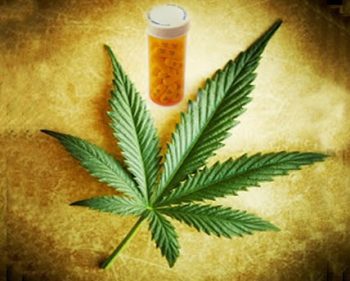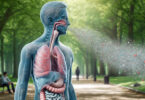By Marco Torres
Guest writer for Wake Up World
Cannabidiol (CBD) is one of over 100 active cannabinoids in cannabis. It accounts for 40 percent of the plant’s extract and is widely considered to be one of it’s most powerful constituents that heals cells. Emergency teams in cardiac and stroke units may soon use CBD’s neuroprotective effects to prevent the onset of debilitating symptoms developing from stroke and cardiac arrest.
The reason cannabis is so effective medicinally is directly related to its ability to interact with receptors in the body which inhibit inflammation and prevent disease. Cannabis does this so well that few drugs can compete with its level of potency, which essentially comes without side effects.
A new study from China documents just how CBD can exert a potentially neuroprotective effect against brain ischemia/reperfusion injury. Brain ischemia is a common clinical condition, and is involved in many serious diseases, including stroke, cardiac arrest, and respiratory arrest. The treatment for this condition usually involves the restoration of blood flow as quickly as possible. However, this can cause secondary injury to the ischemic area, referred to as ischemia/reperfusion injury.
“The restoration of the blood circulation causes inflammation and oxidative-stress-induced damage in the area affected by the absence of oxygen and nutrients during the period of cerebral ischemia,” wrote researchers from Fudan University in Shanghai. “Brain ischemia with reperfusion also results in impaired mitochondrial oxidative metabolism and a depletion of the reducing energy of neurons, which contribute to programmed cell death,” they added.
Said cardiac specialist Dr. Sean McCormick:
“CBD treatments will most certainly exist in emergency rooms for stroke and cardiac patients in the future. … Not only will CBD extracts prevent inflammatory damage but they may also heal existing damage.”
The researchers said it had recently been demonstrated in vivo and in vitro that CBD has a variety of therapeutic properties, exerting antidepressant, anxiolytic, anti-inflammatory, immunomodulatory, and neuroprotective effects. They added:
“Increasing evidence indicates that CBD is a molecule with potentially neuroprotective properties that can be used to treat neurodegenerative disorders.”
This study assessed the mechanisms underlying the potential neuroprotective effects of CBD, a nonpsychotropic compound derived from the Cannabis sativa plant. They were studied in vitro using an oxygen-glucose-deprivation/reperfusion (OGD/R) model in a mouse hippocampal neuronal cell line. The study found that the potent neuroprotective effects of CBD protected against oxygen-glucose-deprivation/reperfusion (OGDR) injury-induced cytotoxicity, energy crisis, and disturbance of the cellular metabolism. The researchers stated it did so by alleviating oxidative stress; enhancing mitochondrial bioenergetics and activating the pentose-phosphate pathway, thereby strengthening the antioxidant defences and preserving the energy homeostasis of neurons. Writing in the journal Redox Biology, they added:
“We found that CBD significantly improved basal respiration, ATP-linked oxygen consumption rate, and the spare respiratory capacity, and augmented glucose consumption in OGD/R-injured neurons. … We propose, for the first time, that CBD stimulates glucose metabolism through the pentose-phosphate pathway to maintain the redox balance and energy conservation during neuronal ischemia/reperfusion injury.”
The researchers concluded that their results suggest CBD exerts a potent neuroprotective effect against ischemia/reperfusion, and added that more in-depth studies are required to investigate the precise mechanism underlying the success of CBD treatment.
Sources:
Recommended articles by Marco Torres:
- Hemp Can Free Us From Oil, Prevent Deforestation and Cure Cancer – So Why Is It Illegal?
- The Endocannabinoid System and How THC Cures Cancer
- Cannabis Treats Anxiety, Depression and Activates Brain Pathways That Regulate Emotional Behavior
- Study Shows The Therapeutic Effects of Marijuana on Autistic Children
- Cannabis Oil Cures Infant of Cancer, Dissolves Inoperable Tumor
- 5 Diseases Proven To Respond Better To Cannabis Than Prescription Drugs
- Another Reason Marijuana is Illegal: It Prevents the Spread of HIV
- 4 Diseases That Can Be Reversed Naturally Without Pharmaceutical Drugs
- 5 Reasons to Juice Rather Than Smoke Cannabis
- Woman Shrinks Inoperable Mass, Heals Her Thyroid Disease With Cannabis Oil
- The Top 15 Lies You’re Being Told About Health and Mainstream Medicine
- Still Believe Nature Got It Wrong? Top 10 Health Benefits of Marijuana
- Cannabis Infused Coffee – Consumers Grow Wise to Health Benefits of Marijuana
About the author:
Marco Torres is a research specialist, writer and consumer advocate for healthy lifestyles. He holds degrees in Public Health and Environmental Science and is a professional speaker on topics such as disease prevention, environmental toxins and health policy.
This article re-posted with permission from Prevent Disease.

If you've found value in our articles, we invite you to support the release of our brand-new book, "Gratitude Practices for Kids: A Practical Guide for Adults to Instill a Spirit of Appreciation and Positivity in the Next Generation."
"Gratitude Practices for Kids" brings together over 25 innovative and accessible practices designed to enhance gratitude in everyday life. This comprehensive guide is backed by 17 scientific studies, ensuring each concept is grounded in research, underscoring our commitment to nurturing growth, emotional intelligence, and positive interactions between adults and children.
We encourage you to opt for the paperback version to celebrate this new release. Dive into its fresh pages away from digital distractions, allowing you to immerse yourself in the transformative practices it offers.
Over recent years, Wake Up World has faced significant online censorship, which has impacted our financial ability to operate. Moving into book publishing represents a strategic step to secure the ongoing funds needed to continue our mission. By purchasing Gratitude for Kids, you help us keep our content free and accessible to everyone, avoiding needing a paywall. With over 8,500 articles published in the last 13 years, we remain dedicated to keeping our valuable content open to all.








